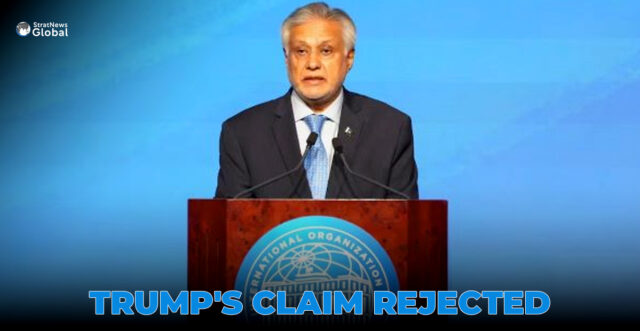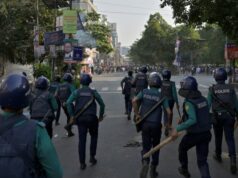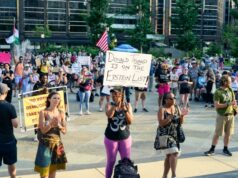Pakistan has stated that India declined any form of third-party mediation during the hostilities between the two South Asian neighbours in May, reaffirming Prime Minister Narendra Modi’s government’s consistent stand that United States President Donald Trump’s claims of having brokered a ceasefire amid Operation Sindoor were inaccurate.
Pakistan’s Deputy Prime Minister and Foreign Minister Mohammad Ishaq Dar, speaking in an interview with Al Jazeera on Tuesday, revealed that Islamabad had raised the issue of external mediation with U.S. Secretary of State Marco Rubio.
According to Dar, the American official made it clear that New Delhi did not endorse the involvement of outside actors in resolving disputes.
“Incidentally, when the ceasefire proposal was relayed through Secretary Rubio to me on the 10th of May… I was told that there would be dialogue between Pakistan and India at a neutral venue. When I met him again on the 25th of July during a bilateral meeting in Washington, I asked what had happened to those dialogues. He responded by saying, ‘India insists that this is a bilateral matter,’” Dar explained.
Trump’s Mediation Claims
Although Trump reiterated his claim of mediation more than two dozen times, India has consistently and categorically denied that the U.S. had played any role in achieving the ceasefire.
Analysts noted that India’s firm assertion of sovereignty on this issue was among the factors that influenced Trump’s aggressive tariff measures against New Delhi.
However, tensions on that front eventually eased, with Washington resuming discussions after Prime Minister Modi underscored ties with Russia through his “Act East” approach while simultaneously facilitating a cautious thaw with China.
Operation Sindoor
During Operation Sindoor, India conducted precision strikes targeting nine terrorist facilities located in Pakistan and in Pakistan-occupied Jammu and Kashmir (PoJK).
The operation was launched in retaliation for the deadly Pahalgam terror attack of April 22, which had resulted in the deaths of 26 civilians, all men and mostly tourists.
Trump, in subsequent remarks, insisted that his administration had leveraged trade to help avert what he claimed could have escalated into a nuclear conflict.
India, however, has maintained that the eventual ceasefire was the outcome of direct communication between the Directors General of Military Operations (DGMOs) of both countries, without any external role.
In his interview, Pakistan’s foreign minister further emphasised that his country would not “beg” for talks with India but remained prepared for “comprehensive dialogue” should New Delhi agree.
India, for its part, has repeatedly underscored that terrorism must cease before any meaningful talks can proceed.
“We do not object to mediation, but India has firmly stated it sees this as a bilateral matter. We are not opposed to bilateral talks either, but those discussions must be comprehensive—covering terrorism, trade, economic cooperation, and the question of Jammu and Kashmir. These are the core issues we have long been raising,” Dar said.
“…Yet, it clearly takes two to tango. Unless India is willing to engage, dialogue cannot be compelled. We certainly do not wish to force talks,” he added.
(With inputs from IBNS)





